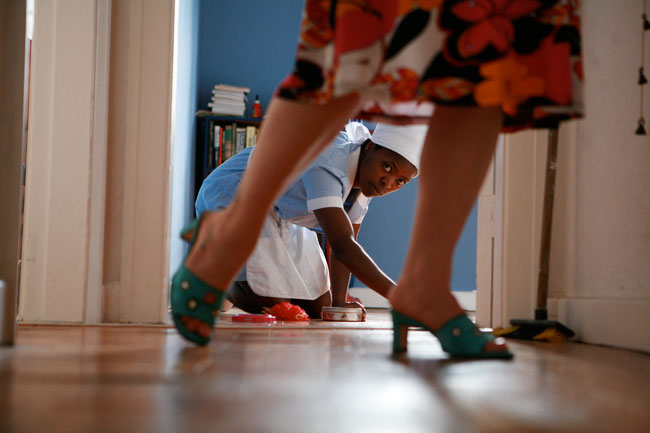Black authors, maids and madams
How black South African authors have written about domestic workers. There's a rich archive there.

Zanele Muholi, "Massa and Minah 2," 2008
Damn, and I thought madamhood was going to be easy.
In the wake of President F.W. de Klerk’s 1990 announcement that liberation movements such as the African National Congress and the Pan-African Congress were unbanned, South African writers began to shift their focus from the struggle against apartheid—which was, until then, the grand narrative of twentieth-century South African literature.
In spite of political changes, one of the most traditional aspects of South African life continued as before: the demography of cities, and the fact that black domestic workers continued to be employed by white families. To this day, over a million workers remain in domestic employment. However, as in similar situations elsewhere and in other times, the literary representation of domestic workers began to change and ever since 1990, black female characters have been stepping out of the shadows, with their own names, voices and identities.
While white authors such as Antjie Krog, Jo-Anne Richards and Damon Galgut continue to grapple with the ambivalent and complex relations involving black women in subordinate positions in post-apartheid South Africa, black authors, on the other hand, have opened new spaces, as if in response to the call of Njabulo S. Ndebele to “rediscover the ordinary.” Jacob Dlamini’s autobiographical Native Nostalgia (2009) is a case in point. It might be said that many black authors “write back” to the metropolitan “center” (i.e. the grand anti-apartheid narrative) by writing stories not of heroic political activists, but of ordinary people such as mothers and aunts, many of whom happen to be domestic workers.





